One of the worst things you could stumble upon this year is a smattering of shallow holes in your lawn. Not only do tiny holes speak toward a potential pest infestation, but they often disfigure and destroy your lawn before it has a chance to recover.
Let’s explore some of the most obvious reasons for finding small holes in your lawn overnight, starting with the basics:
- Why are there new holes in my yard?
- Earthworm mounds
- Animals digging holes
- Chipmunk holes
- Squirrel holes
- Voles
- Moles
- Snakes
- Insects (wasps)
Why are there new holes in my yard?
There are a few possible reasons why there are small holes in your yard: from insect infestations such as wasps and beetles; wildlife animals like squirrels, rabbits, and chipmunks; and rodents and pests such as voles and moles.
Both insects and vertebrate yard pests create holes in your yard that disfigure or kill off grasses surrounding the remaining lawn. As you will soon discover, eliminating them completely begins with proper identification of the problem.
Earthworm Mounds
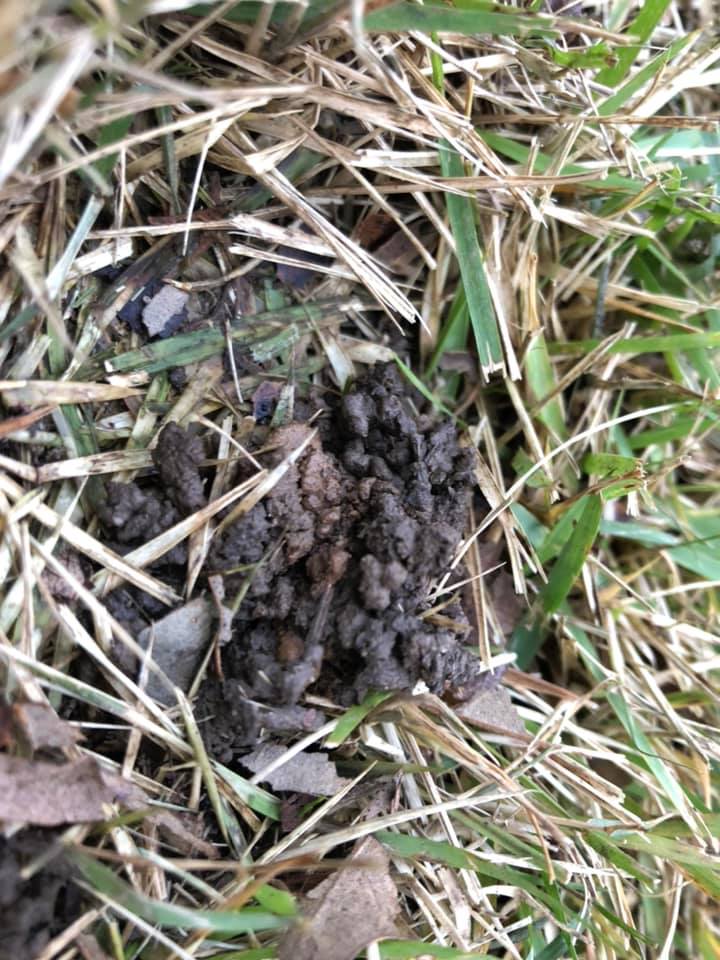
Earthworm mounds are small mud balls that can be found around the lawn. Although they may look unsightly, they shouldn’t be a cause for alarm. In fact, they could mean that your lawn has a healthy population of earthworms!
Leave any earthworm holes well alone. If you can’t stand the look of the mounds, consider raking your lawn regularly to smooth sunken grass.
Chipmunk Holes
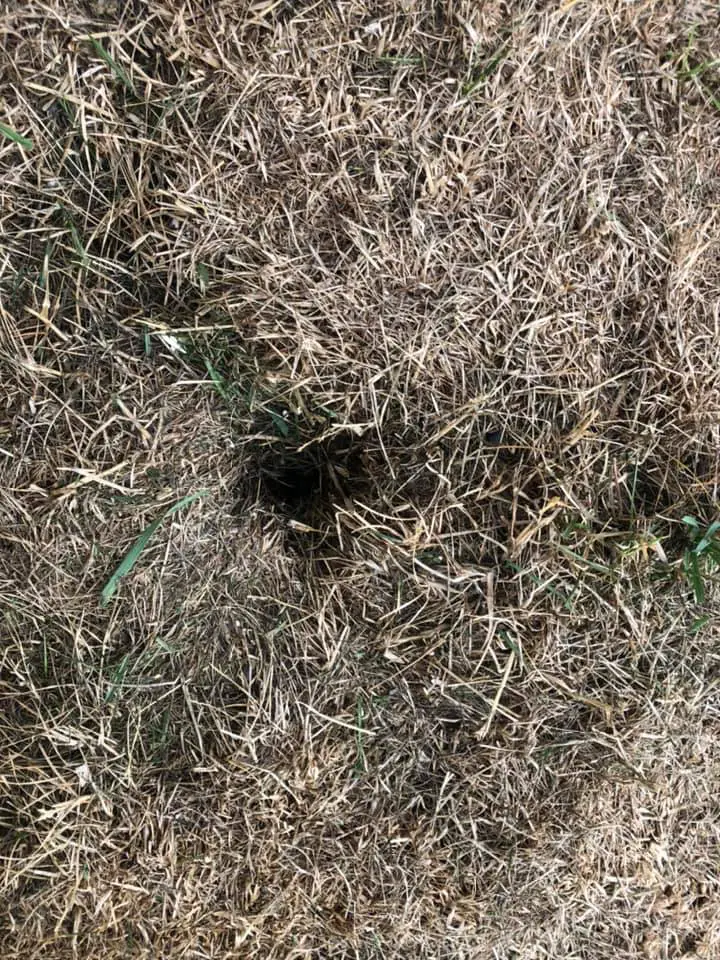
Chipmunks are known for digging holes that allow them to take refuge from predators during the day. Because these creatures create a network of narrow tunnels around the property, it’s best to eliminate them as soon as possible. Use ‘L’ shaped tunnel barriers to reduce their activity, and replace your landscaping with heavy gravel.
Squirrel Holes
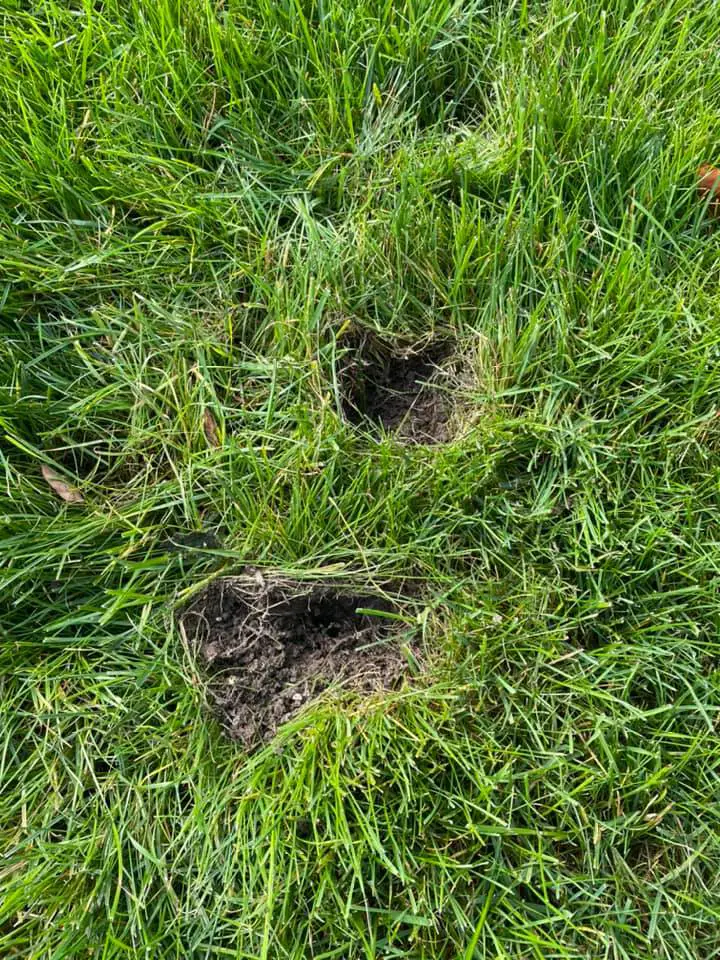
Squirrel holes in your yard are shallow, small divets that trap moisture and injure young plants. You will often find holes from Eastern gray squirrels in garden beds, tree snags, and mulched areas.
Eliminate holes caused by these small rodents using castor oil, live traps, or natural predators.
Voles
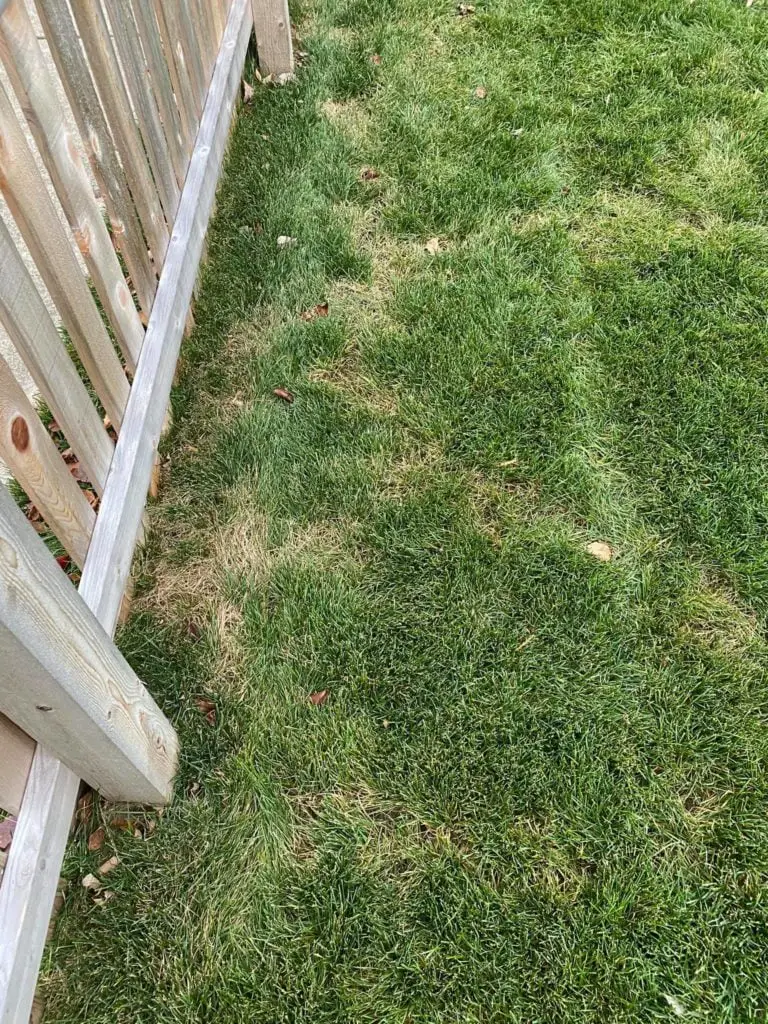
Voles dig small holes all over your property for the purposes of eating in secret. To keep vole holes at bay, cut grasses short, reduce heavy mulching, and pull vegetation away from the sides of the home.
Voles tend to do most of their damage in wintertime, creating patches of dead grass by damaging vulnerable grass blades. Read more on how to get rid of voles using proven resources.
Moles
Moles dig tunnels and tower-like holes that create uneven ground levels around the property. In pursuit of underground insects, these rodents rarely come up for air.
Mole holes can be eliminated using a combination of grub killers, habitat mitigations, and live traps. Learn more about how to get rid of moles using a variety of methods.
Snakes
Snakes are easily some of the most disliked lawn pests on this list. Contrary to popular belief, snakes cannot create their own burrows. Instead, they must repurpose abandoned larger holes that provide shelter from the elements.
Snake holes are typically fixed by filling in or covering holes with soil, grass sods, or burlap. This will ensure the pest cannot return (or breed) near your property.
Insects (Wasps)
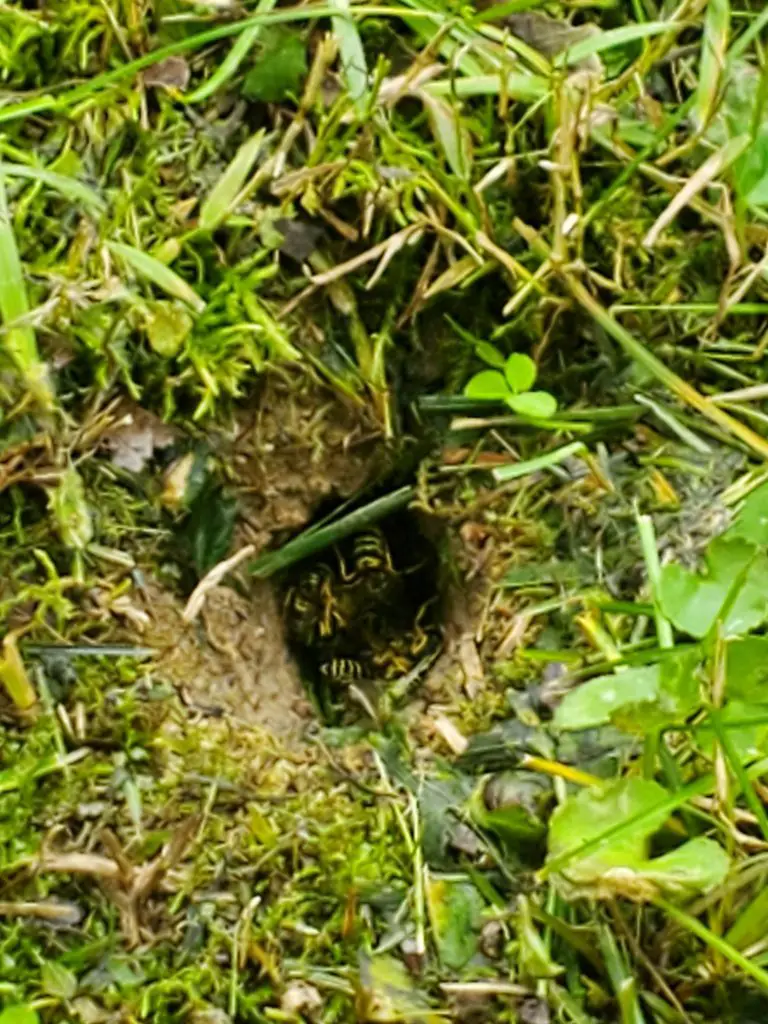
Young wasps hatch from holes in the ground during the early spring months. Some species, including scoliid wasps and cicada killer wasps, create large holes that may be up to an inch in diameter.
Other soil-dwelling insects that create small holes include:
- The cicada killer
- Ants (ant hills)
- Japanese beetles and grubs
- Other insects
Bear in mind that small insect infestations often give rise to additional problems. Holes in the yard caused by grubs and ants attract birds, who will promptly dig up the lawn afresh.
Use a combination of insecticides, proper lawn fertilization, and predatory animals (most birds) to keep reoccurring insect infestations out.
Lawn Holes FAQs
What animal digs small holes at night?
Two of the most common nocturnal hole diggers are skunks and raccoons. These pests hunt for grubs and other tasty insects at night, which is why small overnight holes and scattered soil may appear around the house. The best way to discourage wild animals from digging holes at night is to reduce the number of soil organisms present in your yard. Proper fertilization will be extremely beneficial.
What makes 2-inch holes in the ground?
Larger burrows around your property may have stemmed from bigger animals such as rats. Rat holes are typically fixed by treating any underlying issues, including the proper stacking of log piles and the removal of overgrown grass. For an added layer of protection, consider applying a natural rat repellent to the property.
What animal makes small round holes in the ground?
Holes that are smaller than 2 inches on average were likely created by moles, chipmunks, or voles. Many of these creatures are difficult to remove, and may not be dissuaded without the help of a pest control service. Start applying castor oil pellets around your lawn, and fill in holes as necessary.

I have a recurring hole that does not break through the sod. I have filled it twice and it comes back. Soil gets pushed up through the sod and the hole (1″ deep and 1.5’wide) fills with water. When it dried, I dug down to see if there was a pipe or anything leaking…found nothing. Only appears in one spot. Any ideas ?